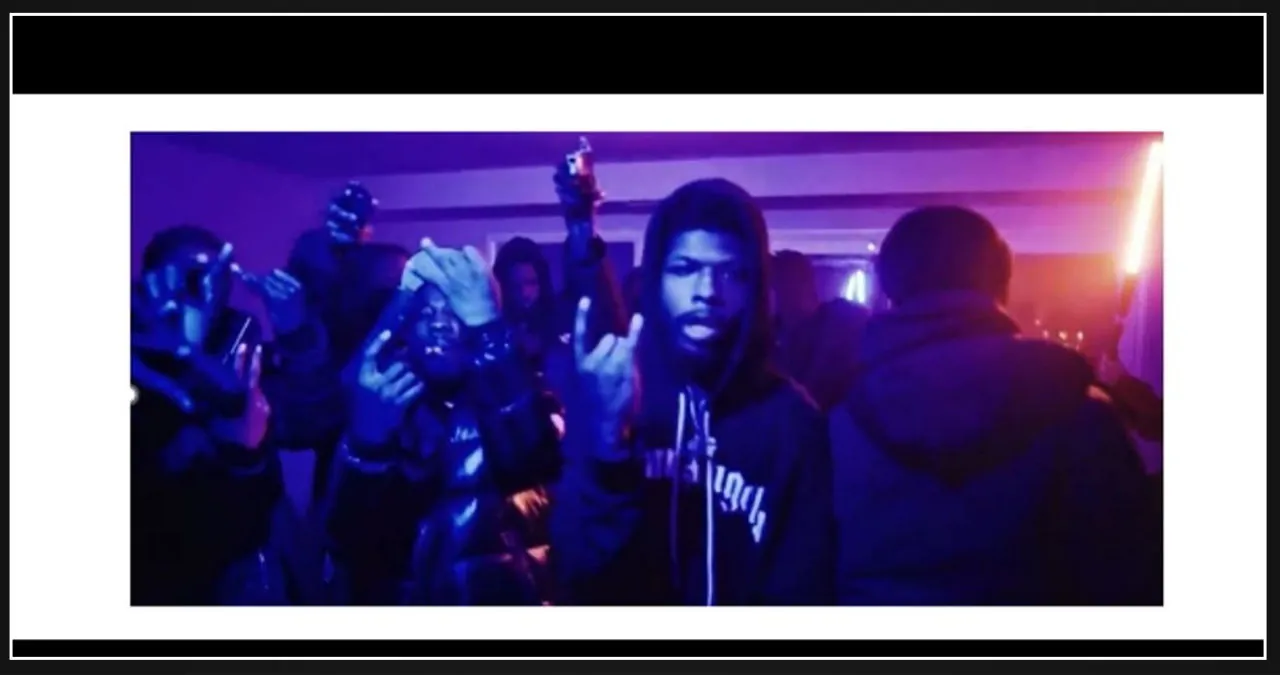A well-known rapper from Washington, D.C. called “Migo Lee” received a 14-year prison sentence on Thursday. He was found guilty of leading a violent drug trafficking organization that ran open-air markets in the Northwest area of the city.
23-year-old Khali Ahmed Brown has been sentenced by U.S. District Judge Beryl Howell after admitting guilt to charges of drug conspiracy, weapons possession, and assault with a dangerous weapon.
He faced charges due to his leadership position in the Kennedy Street Crew (KDY), which prosecutors labeled as one of the most violent and long-standing street crews in the District.
Brown, the rapper who gained notoriety for his taunting rap videos aimed at rival gang members, has confessed to being involved in a conspiracy to distribute marijuana, fentanyl, and oxycodone. Additionally, he has pleaded guilty to a shooting incident near Jackson-Reed High School in November 2022.
The Department of Justice stated in court documents that the Defendant frequently glorifies violence in his videos. He often refers to himself as part of the KDY crew, using the tagline “young and violent,” or identifies himself as a member of “Seal Team 6” or “ST6,” invoking militaristic strategies to eliminate his adversaries. Additionally, he is known for creating “diss” music videos that taunt rival crew members, even those who have tragically lost their lives.
As a rapper, Migo Lee, also known as Brown, used his platform to amplify the crew’s influence and promote violence. Through his music videos, he glorified violence and taunted rival crew members, even going as far as mocking the death of a rival who had been shot and killed in 2019. One such video, titled “Broke/Dead Opps,” showcased this disrespectful behavior.
Federal prosecutors had requested a prison sentence of nearly 18 years for Brown, labeling him as the prominent figure representing KDY. The gang was responsible for running drug markets across an 11-block section of Kennedy Street and its surrounding vicinity, resulting in a surge of violence within the community.
According to court documents, Brown’s involvement from 2019 to 2023 resulted in five homicides, leading to seven deaths in the crew’s territory. Additionally, there were six wounded victims and 19 cases of assault with deadly weapons.
Expressing her dismay at the school incident, Judge Howell questioned the need for a shootout resembling the wild west in a place where parents send their children to be safe. “You take a gun to a public school, where parents send their children to be safe, and you have a shootout like the wild west?” she exclaimed during sentencing.
Brown went beyond just selling drugs on the streets. According to prosecutors, he played a key role in smuggling large amounts of marijuana from the West Coast to the D.C.-Maryland-Virginia area. This lucrative operation helped fuel the crew’s activities and generated substantial profits.
In early 2023, law enforcement searched his residence and arrested several crew members. However, despite this, Brown still managed to make an appearance in a music video where he could be seen brandishing firearms alongside his co-defendant Tristan Ware, who is also known as “Greedy.”
Expressing remorse during his sentencing, Brown highlighted the efforts he has made towards rehabilitation while in custody. These include achieving his high school diploma and obtaining a telecommunications certification.
“I accept full responsibility for my actions. Like anyone else, I am not immune to making mistakes,” Brown admitted to the court. “I cannot classify this incident as an accident because I was fully aware of my actions on the streets. However, it was never my intention to cause harm to anyone while being present on Kennedy Street.”
In her remarks, Judge Howell pointed out that while this was Brown’s first conviction as an adult, he had a troubling history with the law, having been arrested eight times as a juvenile. She expressed her disappointment in the juvenile justice system’s inability to effectively intervene and provide necessary support for Brown.
“You’ve had eight previous arrests. Maybe if one of those arrests had resulted in a conviction and you had faced consequences, you wouldn’t be in this situation right now,” remarked Howell.
The sentence handed down to Brown consists of a 14-year term, with 108 months specifically for drug conspiracy charges and an additional consecutive 60-month sentence for weapons charges. Following his imprisonment, Brown will also be subject to five years of supervised release.
The judge has issued an order for Brown to undergo mental health and substance abuse treatment. In addition, she has highly recommended him for the Bureau of Prisons’ Residential Drug Abuse Program, which has the potential to reduce his sentence upon completion. The judge has also suggested that Brown be placed at FCI Fort Dix in New Jersey; however, his firearms convictions may prevent him from being assigned to a low-security facility.
Brown’s sentencing is a major win for law enforcement in their ongoing fight against drug trafficking and the related violence in the District. Alongside him, his brother, Keion Michael Brown, aged 21, was also handed a sentence of 147 months, equivalent to slightly over 12 years, in federal prison. Additionally, he was ordered to serve five years of supervised release.
“The prosecution targeted leaders and key members of the KDY street crew–one of the largest, oldest, and most violent street crews in our city,” said U.S. Attorney Matthew M. Graves. “With these guilty pleas, every defendant charged in connection with this investigation has now pled guilty to charges that will ensure that they will be removed from, and no longer driving violence in, our community.”

